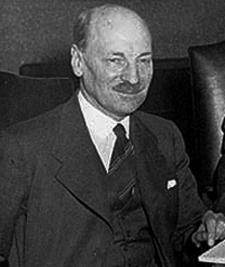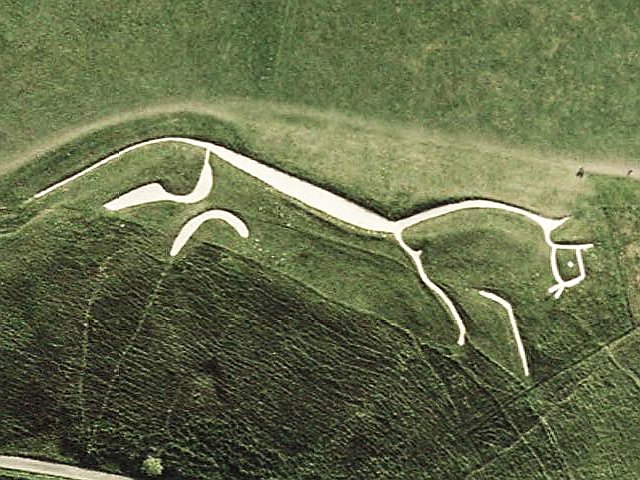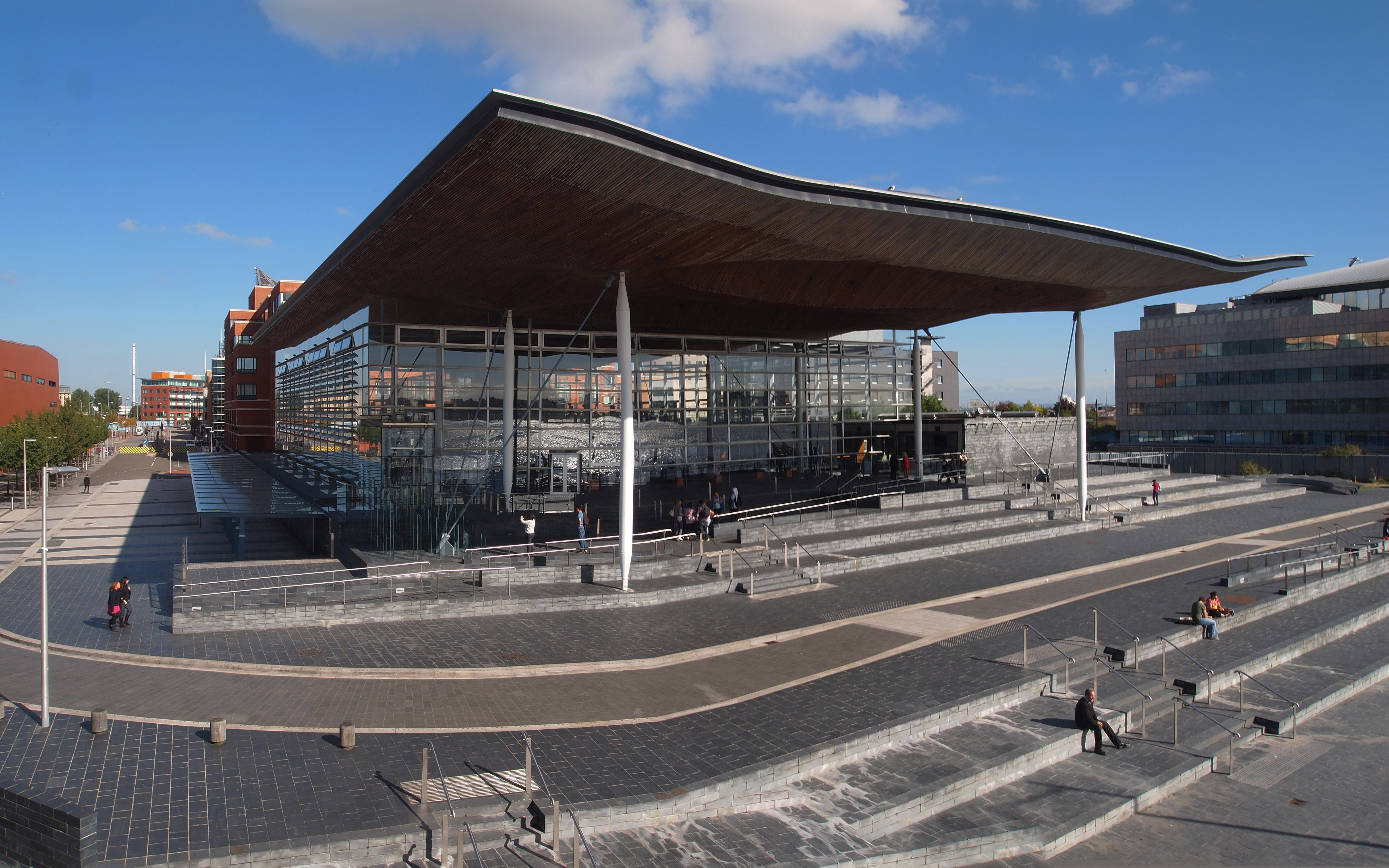|
Swing (United Kingdom)
Swing, in the politics of the United Kingdom, is a number used as an indication of the scale of voter change between two political parties. It originated as a mathematical calculation for comparing the results of two Parliamentary constituencies. The UK uses a first-past-the-post voting system. The swing (in percentage points) is the percentage of voter support minus the comparative percentage of voter support corresponding to the same electorate or demographic. The swing is calculated by comparing the percentage of voter support from one election to another. The percentage value of the comparative elections results are compared with the corresponding results of the substantive election. An electoral swing analysis shows the extent of change in voter support from one election to another. It can be used as a means of comparison between individual candidates or political parties for a given electoral region or demographic. Original mathematical calculation The original mathematic ... [...More Info...] [...Related Items...] OR: [Wikipedia] [Google] [Baidu] |
Politics Of The United Kingdom
The United Kingdom is a unitary state with devolution that is governed within the framework of a parliamentary democracy under a constitutional monarchy in which the monarch, currently Charles III, King of the United Kingdom, is the head of state while the Prime Minister of the United Kingdom, Rishi Sunak, is the head of government. Executive power is exercised by the British government, on behalf of and by the consent of the monarch, and the devolved governments of Scotland, Wales and Northern Ireland. Legislative power is vested in the two chambers of the Parliament of the United Kingdom, the House of Commons and the House of Lords, as well as in the Scottish, Northern Irish and Welsh parliaments. The British political system is a two party system. Since the 1920s, the two dominant parties have been the Conservative Party and the Labour Party. Before the Labour Party rose in British politics, the Liberal Party was the other major political party, along with the Conserv ... [...More Info...] [...Related Items...] OR: [Wikipedia] [Google] [Baidu] |
Postwar Britain (1945–1979)
When Britain emerged victorious from the Second World War, the Labour Party under Clement Attlee came to power and created a comprehensive welfare state, with the establishment of the National Health Service giving free healthcare to all British citizens, and other reforms to benefits. The Bank of England, railways, heavy industry, and coal mining were all nationalised. The most controversial issue was nationalisation of steel, which was profitable unlike the others. Economic recovery was slow, housing was in short supply, bread was rationed along with many necessities in short supply. It was an "age of austerity". American loans and Marshall Plan grants kept the economy afloat. India, Pakistan, Burma and Ceylon gained independence. Britain was a strong anti-Soviet factor in the Cold War and helped found NATO in 1949. Many historians describe this era as the "post-war consensus" emphasizing how both the Labour and Conservative parties until the 1970s tolerated or encouraged natio ... [...More Info...] [...Related Items...] OR: [Wikipedia] [Google] [Baidu] |
South East England
South East England is one of the nine official regions of England at the ITL 1 statistical regions of England, first level of International Territorial Level, ITL for Statistics, statistical purposes. It consists of the counties of england, counties of Buckinghamshire, East Sussex, Hampshire, the Isle of Wight, Kent, Oxfordshire, Berkshire, Surrey and West Sussex. Major towns and cities in the region include Brighton and Hove, Milton Keynes, Southampton, Portsmouth, Slough, Reading, Berkshire, Reading and Oxford. South East England is the third largest region of England, with an area of 19,096 km2 (7,373 sq mi), and is also the most populous with a total population of over eight and a half million (2011). The region contains seven legally city status in the United Kingdom, chartered cities: Brighton and Hove, Canterbury, Chichester, Oxford, Portsmouth, Southampton and Winchester. The region's close proximity to London and connections to several national motorways have le ... [...More Info...] [...Related Items...] OR: [Wikipedia] [Google] [Baidu] |
Scottish Conservatives
The Scottish Conservative & Unionist Party ( gd, Pàrtaidh Tòraidheach na h-Alba, sco, Scots Tory an Unionist Pairty), often known simply as the Scottish Conservatives and colloquially as the Scottish Tories, is a centre-right political party in Scotland. It is the second-largest party in the Scottish Parliament and the third-largest in Local government in Scotland, Scottish local government. The party has the second-largest number of Scottish MPs in the House of Commons of the United Kingdom and the seventh overall. The Leader of the party is Douglas Ross (Scottish politician), Douglas Ross. He replaced Jackson Carlaw, who briefly served from February to July 2020; Carlaw had in turn taken over from Ruth Davidson, who held the post from 2011 Scottish Conservative Party leadership election, 2011 to 2019. The party has no Chief Whip at Westminster, which is instead represented by the Chief Whip of the Conservative Party in England. In the 2017 United Kingdom general election ... [...More Info...] [...Related Items...] OR: [Wikipedia] [Google] [Baidu] |
2010 United Kingdom General Election
The 2010 United Kingdom general election was held on Thursday 6 May 2010, with 45,597,461 registered voters entitled to vote to elect members to the House of Commons. The election took place in 650 constituencies across the United Kingdom under the first-past-the-post system. The election resulted in a large swing to the Conservative Party similar to that seen in 1979, the last time a Conservative opposition had ousted a Labour government. The Labour Party lost the 66-seat majority it had previously enjoyed, but no party achieved the 326 seats needed for a majority. The Conservatives, led by David Cameron, won the most votes and seats, but still fell 20 seats short. This resulted in a hung parliament where no party was able to command a majority in the House of Commons. This was only the second general election since the Second World War to return a hung parliament, the first being the February 1974 election. For the leaders of all three major political parties, this was t ... [...More Info...] [...Related Items...] OR: [Wikipedia] [Google] [Baidu] |
Brighton Pavilion (constituency)
Brighton Pavilion is a constituency represented in the House of Commons of the UK Parliament since 2010 by Caroline Lucas of the Green Party. Boundaries 1950–1983: The County Borough of Brighton wards of Hollingbury, Montpelier, Patcham, Pavilion, Preston, Preston Park, Regency, St Nicholas, St Peter's, and West. 1983–1997: The Borough of Brighton wards of Hollingbury, Patcham, Preston, Regency, St Peter's, Seven Dials, Stanmer, and Westdene. 1997–2010: The Borough of Brighton wards of Hanover, Hollingbury, Patcham, Preston, Regency, St Peter's, Seven Dials, Stanmer, and Westdene. 2010–present: The City of Brighton and Hove wards of Hanover and Elm Grove, Hollingdean and Stanmer (called Hollingbury and Stanmer before 2011), Patcham, Preston Park, Regency, St Peter's and North Laine, and Withdean. Constituency history and profile The constituency was created in 1950 from the former two-member constituency of Brighton (one of the last remaining multi-member constitue ... [...More Info...] [...Related Items...] OR: [Wikipedia] [Google] [Baidu] |
United Kingdom Independence Party
The UK Independence Party (UKIP; ) is a Eurosceptic, right-wing populist political party in the United Kingdom. The party reached its greatest level of success in the mid-2010s, when it gained two members of Parliament and was the largest party representing the UK in the European Parliament. The party is currently led by Neil Hamilton. UKIP originated as the Anti-Federalist League, a single-issue Eurosceptic party established in London by Alan Sked in 1991. It was renamed UKIP in 1993, but its growth remained slow. It was largely eclipsed by the Eurosceptic Referendum Party until the latter's 1997 dissolution. In 1997, Sked was ousted by a faction led by Nigel Farage, who became the party's preeminent figure. In 2006, Farage officially became leader and, under his direction, the party adopted a wider policy platform and capitalised on concerns about rising immigration, in particular among the White British working class. This resulted in significant breakthroughs at the ... [...More Info...] [...Related Items...] OR: [Wikipedia] [Google] [Baidu] |
Green Party Of England And Wales
The Green Party of England and Wales (GPEW; cy, Plaid Werdd Cymru a Lloegr, kw, Party Gwer Pow an Sowson ha Kembra, often simply the Green Party or Greens) is a green, left-wing political party in England and Wales. Since October 2021, Carla Denyer and Adrian Ramsay have served as the party's co-leaders. The party currently has one representative in the House of Commons and two in the House of Lords, in addition to hundreds of councillors at the local government level and three members of the London Assembly. The party's ideology combines environmentalism with left-wing economic policies, including well-funded and locally controlled public services. It advocates a steady-state economy with the regulation of capitalism, and supports proportional representation. It takes a progressive approach to social policies such as civil liberties, animal rights, LGBT rights, and drug policy reform. The party also believes strongly in non-violence, universal basic income, a living wa ... [...More Info...] [...Related Items...] OR: [Wikipedia] [Google] [Baidu] |
Welsh Assembly
The Senedd (; ), officially known as the Welsh Parliament in English and () in Welsh, is the devolved, unicameral legislature of Wales. A democratically elected body, it makes laws for Wales, agrees certain taxes and scrutinises the Welsh Government. It is a bilingual institution, with both Welsh and English being the official languages of its business. From its creation in May 1999 until May 2020, the Senedd was known as the National Assembly for Wales ( cy, Cynulliad Cenedlaethol Cymru, lang, link=no). The Senedd comprises 60 members who are known as Members of the Senedd (), abbreviated as "MS" (). Since 2011, members are elected for a five-year term of office under an additional member system, in which 40 MSs represent smaller geographical divisions known as "constituencies" and are elected by first-past-the-post voting, and 20 MSs represent five "electoral regions" using the D'Hondt method of proportional representation. Typically, the largest party in the Senedd forms ... [...More Info...] [...Related Items...] OR: [Wikipedia] [Google] [Baidu] |
Scottish Parliament
The Scottish Parliament ( gd, Pàrlamaid na h-Alba ; sco, Scots Pairlament) is the devolved, unicameral legislature of Scotland. Located in the Holyrood area of the capital city, Edinburgh, it is frequently referred to by the metonym Holyrood. The Parliament is a democratically elected body comprising 129 members known as Members of the Scottish Parliament (MSPs), elected for five-year terms under the additional member system: 73 MSPs represent individual geographical constituencies elected by the plurality (first-past-the-post) system, while a further 56 are returned as list members from eight additional member regions. Each region elects seven party-list MSPs. Each region elects 15 to 17 MSPs in total. The most recent general election to the Parliament was held on 6 May 2021, with the Scottish National Party winning a plurality. The original Parliament of Scotland was the national legislature of the independent Kingdom of Scotland and existed from the early 13th centur ... [...More Info...] [...Related Items...] OR: [Wikipedia] [Google] [Baidu] |
Plaid Cymru
Plaid Cymru ( ; ; officially Plaid Cymru – the Party of Wales, often referred to simply as Plaid) is a centre-left to left-wing, Welsh nationalist political party in Wales, committed to Welsh independence from the United Kingdom. Plaid was formed in 1925 and won its first seat in the UK Parliament in 1966. The party holds four of 40 Welsh seats in the UK Parliament, 13 of 60 seats in the Senedd, and 203 of 1,231 principal local authority councillors. It is a member of the European Free Alliance. Platform Plaid Cymru's goals as set out in its constitution are: # To promote the constitutional advancement of Wales with a view to attaining independence; # To ensure economic prosperity, social justice and the health of the natural environment, based on decentralist socialism; # To build a national community based on equal citizenship, respect for different traditions and cultures and the equal worth of all individuals, whatever their race, nationality, gender, colour, creed, ... [...More Info...] [...Related Items...] OR: [Wikipedia] [Google] [Baidu] |
Scottish National Party
The Scottish National Party (SNP; sco, Scots National Pairty, gd, Pàrtaidh Nàiseanta na h-Alba ) is a Scottish nationalist and social democratic political party in Scotland. The SNP supports and campaigns for Scottish independence from the United Kingdom and for membership of the European Union, with a platform based on civic nationalism. The SNP is the largest political party in Scotland, where it has the most seats in the Scottish Parliament and 45 out of the 59 Scottish seats in the House of Commons at Westminster, and it is the third-largest political party by membership in the United Kingdom, behind the Labour Party and the Conservative Party. The current Scottish National Party leader, Nicola Sturgeon, has served as First Minister of Scotland since 20 November 2014. Founded in 1934 with the amalgamation of the National Party of Scotland and the Scottish Party, the party has had continuous parliamentary representation in Westminster since Winnie Ewing won th ... [...More Info...] [...Related Items...] OR: [Wikipedia] [Google] [Baidu] |







